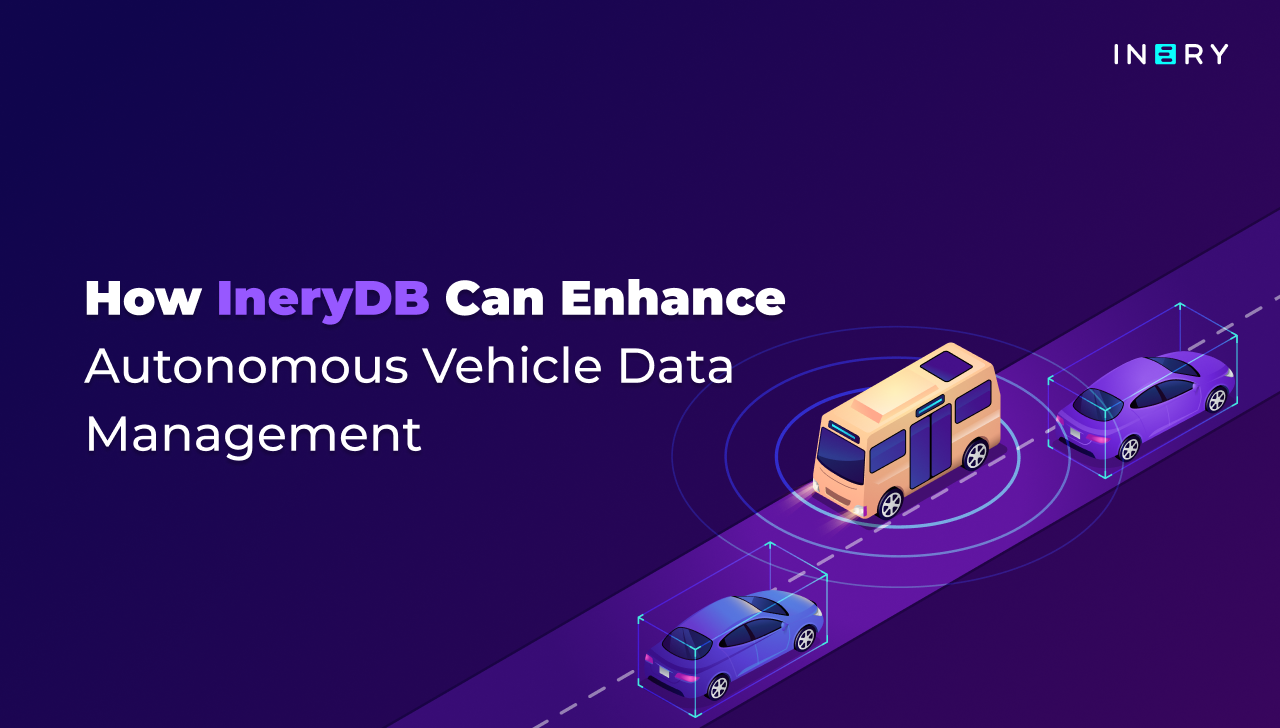Imagine you're cruising down the highway, hands off the wheel, while your car effortlessly navigates traffic, handles sharp turns, and even finds the best route to your destination. This isn't science fiction anymore—it's the promise of autonomous vehicles. But behind this seamless experience lies a massive, invisible network of data, working tirelessly to keep you safe.
Autonomous vehicles generate a staggering amount of data every second they’re on the road, from sensor inputs to AI decision-making processes. Managing this data is crucial—not just to keep the car running smoothly but to ensure it makes the right decisions in real-time, every time.
However, with great data comes great responsibility. What happens when that data is compromised? What if the systems storing and processing this data can’t keep up with the demand? These aren't just theoretical concerns—there have been incidents of hacking and system failures that show just how high the stakes are.
The Evolution of Autonomous Vehicles
Autonomous vehicles have evolved from a futuristic concept to a burgeoning reality. Early developments in the 1980s and 1990s, such as DARPA's autonomous vehicle challenges, laid the groundwork for today's AV technology. The integration of artificial intelligence (AI), machine learning, and advanced sensors has allowed AVs to navigate complex environments with minimal human intervention.
Over the years, companies like Tesla, Waymo, and Uber have spearheaded the development of AVs, conducting extensive testing and gradually integrating autonomous features into consumer vehicles. Today, AVs are capable of handling various driving tasks, from simple lane-keeping to fully autonomous city driving. However, despite these advancements, challenges remain, particularly in ensuring the safety and reliability of these vehicles.
Challenges in Autonomous Vehicle Data Management
One of the most significant challenges in the development and deployment of AVs is data management. Autonomous vehicles generate enormous amounts of data, with each vehicle producing up to 30 GB of data per hour. This data includes sensor readings, video feeds, radar signals, and more. Managing this data in real-time is crucial for the safe operation of AVs, but it also presents several challenges:
Data volume and velocity: The sheer volume of data generated by AVs is staggering. Managing this data in real-time requires high-speed data processing and storage solutions capable of handling large datasets without latency.
Data integrity and security: Ensuring the integrity and security of the data generated by AVs is critical. Autonomous vehicles must be resilient to cyberattacks that could compromise their operation. Past incidents, such as the hacking of a Jeep Cherokee in 2015, underscore the importance of resilient cybersecurity measures.
Scalability: As more AVs are deployed on the roads, the need for scalable data management solutions becomes apparent. Traditional centralized databases may struggle to scale efficiently, leading to potential bottlenecks in data processing and storage.
Data redundancy and reliability: In the event of a system failure, it is essential to have redundant data storage solutions to prevent data loss and ensure the continuous operation of AVs.
The Role of IneryDB in Autonomous Vehicle Data Management
IneryDB, a decentralized database management solution, addresses many of the challenges associated with autonomous vehicle data management. By leveraging blockchain technology, IneryDB offers a secure, scalable, and efficient solution for managing the vast amounts of data generated by AVs.
High-Speed data processing: IneryDB is designed to handle high-speed data processing with a transaction rate of over 10,000 transactions per second (TPS). This capability ensures that AVs can process and store data in real-time, minimizing latency and enabling faster decision-making on the road.
Enhanced data security: Security is a core feature of IneryDB. By using blockchain technology, IneryDB ensures that data is stored in an immutable and tamper-proof manner. This enhances the security of AV data, protecting it from unauthorized access and cyberattacks. The decentralized nature of IneryDB also means that data is not stored in a single location, reducing the risk of data breaches.
Scalability: IneryDB's decentralized architecture allows for seamless scalability. As more AVs are deployed, IneryDB can scale to accommodate the increased data load without sacrificing performance. This makes it an ideal solution for managing the growing data needs of the autonomous vehicle industry.
Data redundancy and reliability: IneryDB provides resistant data redundancy by distributing data across multiple nodes in the network. This ensures that data is always available, even in the event of a system failure, thereby enhancing the reliability of AV operations.
Cross-chain interoperability: IneryDB supports cross-chain interoperability, allowing data to be seamlessly transferred between different blockchain networks. This feature is particularly useful for AVs that need to communicate with other vehicles and infrastructure in a secure and efficient manner.
Addressing the Challenges of Autonomous Vehicle Data Management with IneryDB
Managing data for autonomous vehicles (AVs) is no small task, but IneryDB steps up to the challenge with a solution designed to meet these demands. By combining its decentralized architecture with high-speed processing and strong security features, IneryDB helps make AVs safer, more reliable, and more efficient.
Safety is crucial when it comes to autonomous vehicles, and IneryDB plays a vital role by ensuring that data is processed both quickly and securely. This minimizes the risk of accidents that could result from delayed or compromised data.
As the AV industry continues to innovate, IneryDB’s scalable and flexible design makes it possible to develop new features and capabilities. Whether it’s improving AI-driven decision-making or enabling advanced vehicle-to-vehicle (V2V) communication, IneryDB lays the groundwork for future advancements in autonomous technology.
Reliability is another key factor for AVs, especially in critical situations. IneryDB ensures that data is always available, even in the event of system failures, thanks to its decentralized and redundant storage. This means that autonomous vehicles can keep operating smoothly, no matter what. IneryDB is more than just a technology; it’s a vital part of making the future of driving not only possible but safe and dependable.
Conclusion
Autonomous vehicles represent the future of transportation, but their success depends on effective data management. The challenges of data volume, security, scalability, and reliability must be addressed to ensure the safe and efficient operation of AVs.
IneryDB offers a powerful solution to these challenges, providing a decentralized, secure, and scalable database management system that enhances the capabilities of autonomous vehicles. As the AV industry continues to evolve, IneryDB is poised to play a critical role in shaping the future of autonomous transportation.

Inery•
1 year ago
Digital Art and NFTs: The Role of Inery in Securing Creative Ownership
Explore the evolution of art ownership from traditional to digital realms, the rise of NFTs, and the unique challenges they present. Discover how Inery's blockchain technology secures creative ownership and enhances the digital art ecosystem. ...READ MORE

Share

Inery•
2 years ago
Fighting Algorithmic Bias – Ethical Dilemmas and AI
AI's rapid evolution raises ethical concerns, emphasizing the need for fair and transparent applications through diverse datasets, audits, and societal changes for an inclusive and ethical future. ...READ MORE

Share

Inery•
1 year ago
Why Minimalist Data Management Leads to Better Performance
Learn why adopting a minimalist approach to data can boost efficiency, lower expenses, and keep your information secure. ...READ MORE

Share

Inery•
2 years ago
The Power of Blockchain in E-commerce and Logistics
If you're not yet convinced of the benefits of blockchain for e-commerce and logistics, click here to learn why you should be. ...READ MORE
-1678970347.png)
Share
Most popular today



